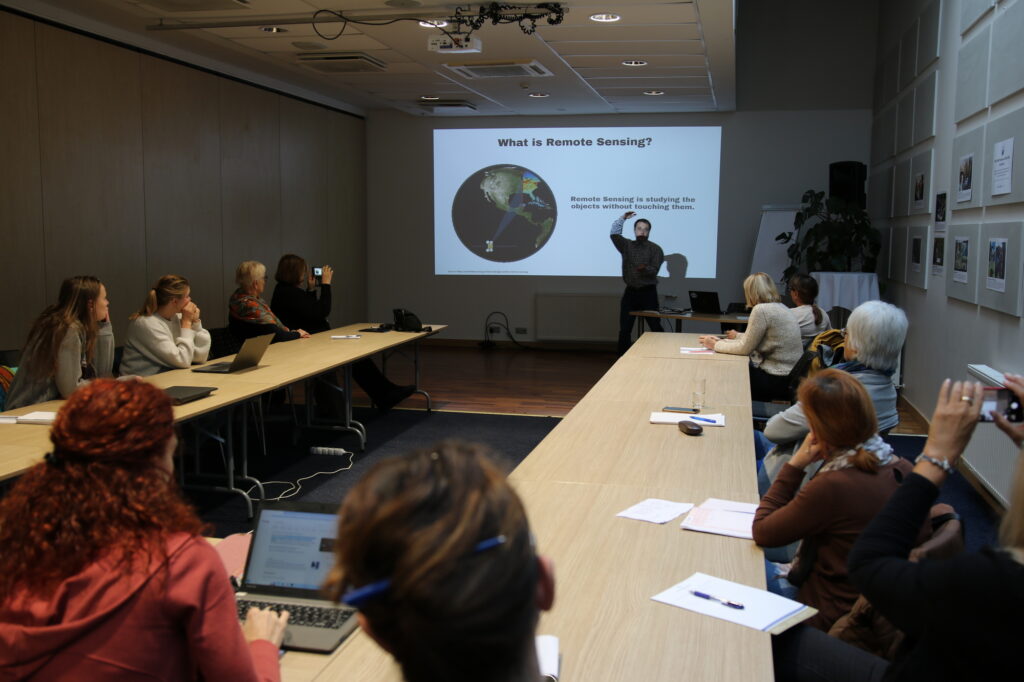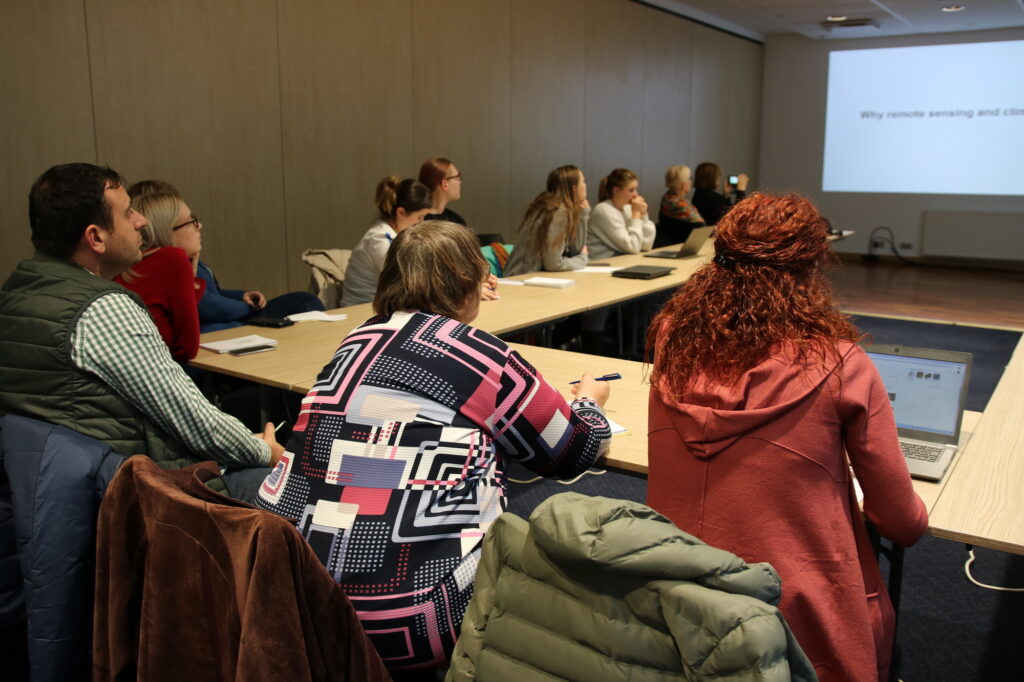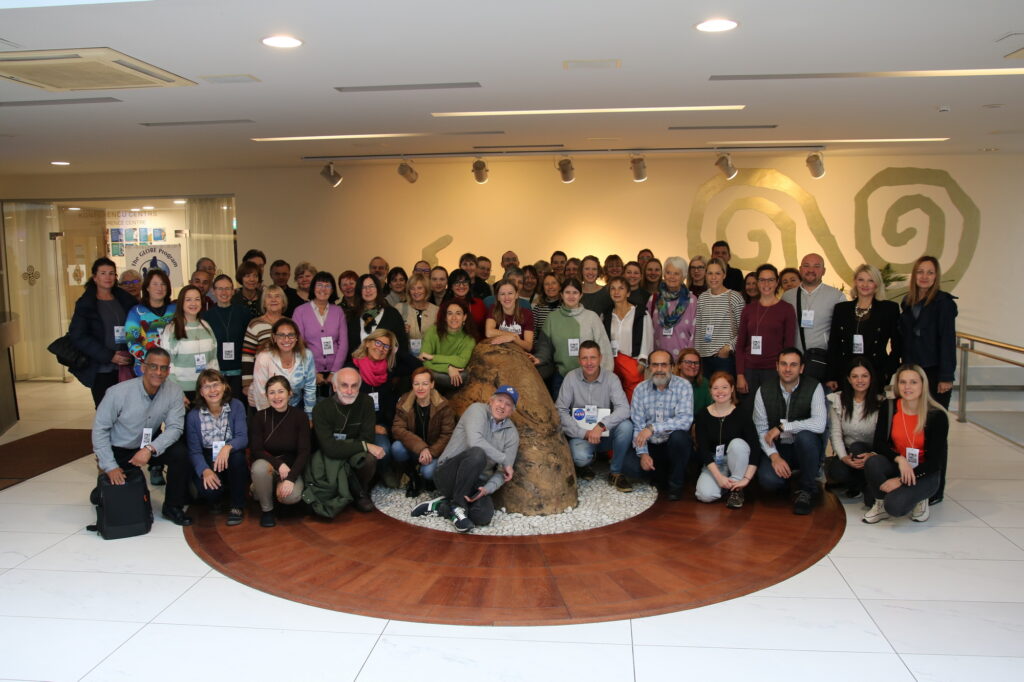Don’t be afraid to teach remote sensing in schools!



Remote sensing and climate change were the main topics of a seminar organized within the GLOBE Regional Meeting for Europe and Eurasia (2023.globemeeting.eu). Almost 100 teachers, scientists and GLOBE programme coordinators met in Riga, Latvia, on 18-20 October. The GLOBE (Global Learning and Observations to Benefit the Environment) program is an international science and education program that focuses on promoting scientific literacy and building connections between people passionate about the environment. GLOBE learners investigate and study Earth System Science through their own research projects (globe.gov).
The workshop on remote sensing led by Premysl Stych was received with great interest by the teachers. It presented how satellite data can be used in the field of climate change and how to combine in-situ data with open Earth observation data. Teachers most appreciated freely available satellite data processing applications such as Sentinel Hub (sentinel-hub.com) or Earth Map (earthmap.org), which allow easy access to satellite data and extracting useful information from them. The use of the rich archive of in-situ collected GLOBE data combined with satellite data to analyse environmental changes over long periods of time seems very promising. Long time series are extremely important for identifying temperature anomalies, phenological phases and other characteristics to assess the true impact of climate change on the environment and society.
The EO4Landscape research group works closely with the main GLOBE coordinator for the Czech Republic, TEREZA, vzdělávací centrum, z.ú. (terezanet.cz). In early 2024, a workshop for Czech teachers will be jointly organised, inspired by the experience gained and feedback from teachers during this international workshop. The FPCUP project – Framework Partnership Agreement on Copernicus User Uptake (copernicus-user-uptake.eu) supports this fruitful collaboration in the implementation of Earth observation data in schools and the exploration of climate change.